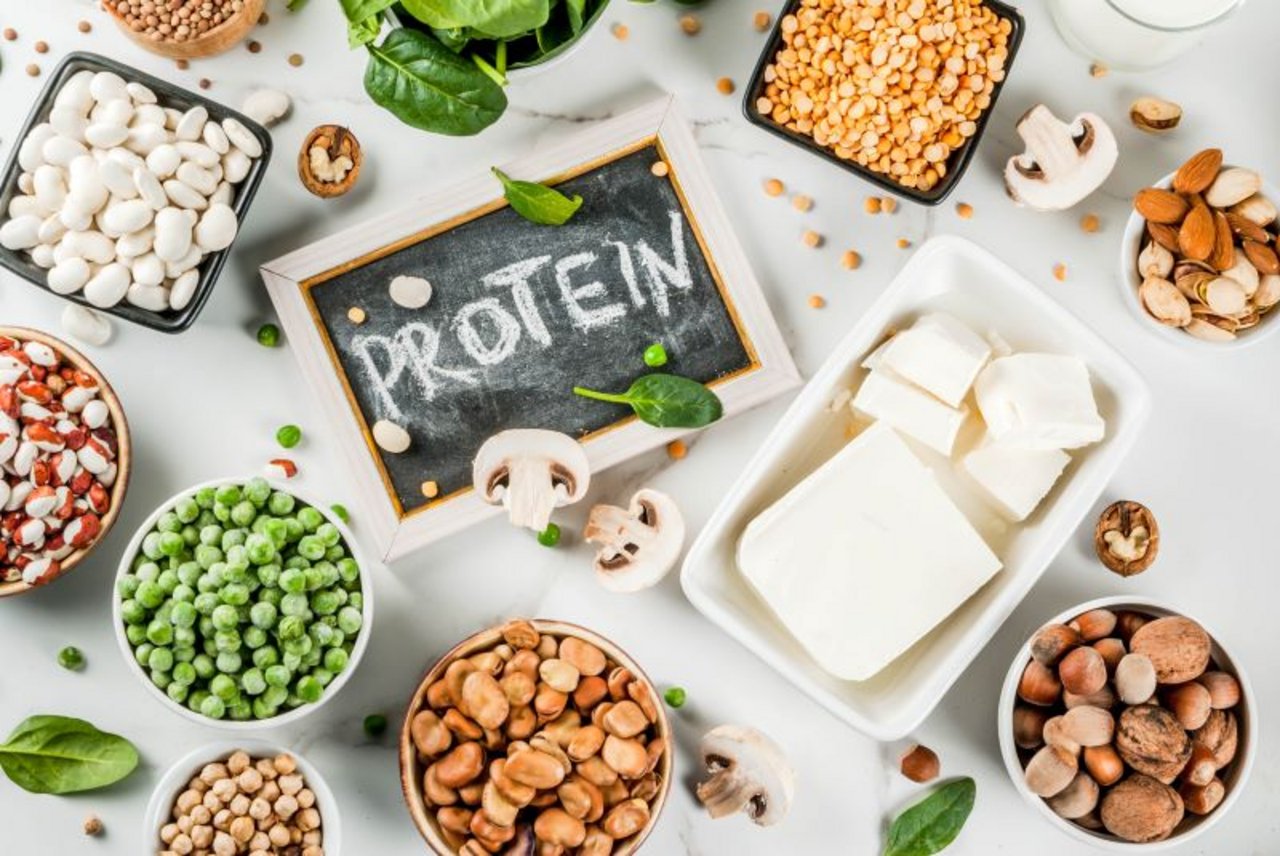The rise of plant based protein powder is transforming active sports nutrition, offering athletes a healthier, more effective alternative to traditional proteins. With benefits like improved muscle recovery and enhanced performance, HSH Chemie leads the way with innovative products, including pea and rice protein powder.

The rise of plant based protein powder is transforming sports nutrition products, offering athletes and fitness enthusiasts a healthier, more sustainable alternative to traditional animal-based proteins. With benefits ranging from improved muscle recovery to reduced environmental impact. Clean label trends are also driving the development of plant based protein powders that meet consumer demand for minimal processing and no artificial additives. HSH Chemie is driving innovation with its diverse product range in plant based protein including pea and rice protein powder to improve athletic performance.
Sales of active sports nutrition products through major supermarkets and chemists saw growth in 2022/23, primarily driven by price increases. Rising costs of ingredients, energy, transport, and packaging fueled inflation in this category. These factors, combined with strained household finances, led to two in five consumers viewing high-protein active sports nutrition products as poor value for money.
The market is being transformed by the growing popularity of plant based protein powder. Consumers are increasingly opting for pea and rice protein powder as a cost-effective alternative. Understanding how does nutrition affect athletic performance is crucial, as it can significantly improve athletic performance by providing essential macronutrients. Additionally, the muscle protein synthesis window is a key consideration for athletes aiming to maximize their gains.

Adequate dietary protein is essential for various health aspects, and current evidence suggests that individuals who exercise need higher protein intake. Animal protein sources are often rated the highest in quality due to their superior levels of essential amino acids, their favorable digestibility, and absorption patterns. Recently, the inclusion of plant based protein powder in diets has increased, with growing evidence comparing the effectiveness of different plant based protein powder sources such as pea and rice protein powder and animal proteins in stimulating the muscle protein synthesis window, enhancing exercise training adaptations, and aiding exercise recovery.
Popular plant-based protein sources include soy, pea, rice, hemp, and fava bean, each offering distinct benefits including macronutrients, and catering to a variety of dietary needs. These proteins are increasingly favored for their lower levels of saturated fats, high fiber content, and rich profile of vitamins and minerals, and help improve athletic performance and recovery.

Health benefits play a significant role; plant-based diets are linked to reduced risks of heart disease, diabetes, and obesity. Consumers are increasingly aware of the connection between diet and long-term wellness, leading to greater interest in plant-based options that support overall health and longevity. Many consumers are choosing these options to lower their environmental footprint and support a more sustainable food system high in macronutrients.
The surge in popularity of plant based protein powder has been notable in recent years. Initial studies focused on the immediate effects of different protein sources on muscle protein synthesis, highlighting a clear advantage for high-quality animal proteins. These proteins were initially recommended for their superior health and performance benefits, while plant proteins like pea and rice protein powder were considered less effective for achieving exercise training goals. However, more recent research has begun to compare the long-term effects of animal and plant based protein powder sources on strength, endurance, power, fat-free mass, and recovery over several weeks of exercise training and supplementation. This extended research indicates that when athletes meet the recommended daily protein intake (1.4–2.0 g/kg/day), the source of protein does not significantly influence the outcomes.
In Germany, the sports nutrition market is experiencing growth, with a strong emphasis on health and wellness. A 2023 Mintel report on attitudes towards sports nutrition in Germany showed that German consumers are increasingly interested in the benefits of sports nutrition products, particularly those that are natural and sustainably sourced. Here are some of its key findings:

Plant based protein powder provides all the essential amino acids needed for muscle recovery and growth. Beyond muscle building, plant based protein powder offers various health advantages such as increased macronutrients in your body and easier access to the muscle protein synthesis window. Plant based protein powder also promotes healthy digestion and gut health, which are crucial for athletes to maintain energy and stamina and to improve athletic performance. Moreover, plant based protein powder can help manage weight by increasing satiation and reducing overall calorie intake, benefiting athletes aiming for optimal body composition and improved athletic performance.

The market for plant based protein powder is rapidly evolving. Each offers unique benefits positively impacting active sports nutrition:
HSH Chemie is at the forefront of the plant-based protein movement, offering a diverse range of high-quality plant-origin proteins, including soy, pea, rice, hemp, and fava bean proteins. These products are specifically tailored to meet the needs of athletes and health-conscious consumers, providing a range of options that support various performance goals and dietary preferences.
HSH Chemie’s focus on plant-based proteins such as pea and rice protein powder reflects its broader mission to lead the way in plant-based nutrition. By embracing new technologies and forming strategic partnerships, the company is poised to remain a key player in the future of active sports nutrition products.
Plant based protein powder is more than just a fleeting trend; it represents a fundamental shift in how we approach sports nutrition. The combination of health benefits, environmental impact, and ethical considerations makes plant based protein powder a compelling choice for athletes and fitness enthusiasts worldwide.
As the demand for plant-based proteins continues to grow, the future looks bright for this transformative segment of sports nutrition. The integration of these proteins into mainstream diets is poised to bring significant benefits not only to athletes but also to the planet and society at large. The continued rise of plant based protein powder in active sports nutrition products reflects a broader shift towards more conscious, health-focused, and sustainable living – one that is likely to continue for years to come.
Curious to learn more about why pea and faba proteins are the future of food? Read our article on the rise of plant-based foods.
Interested in learning more about our plant-based food ingredients? Explore our food market segment products.
Is there anything we can do for you? If you are interested in our plant-based products or need more information,
please let us know! Use our contact form to get in touch with our expert team.